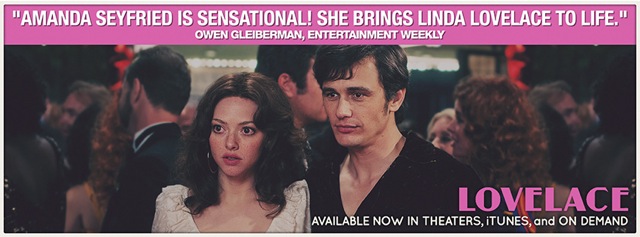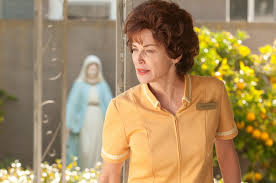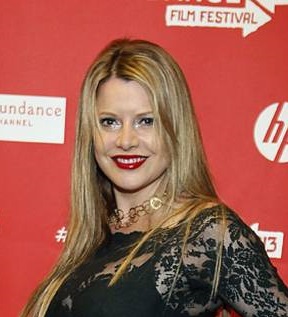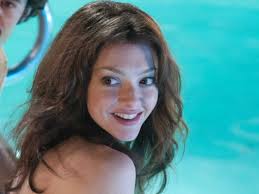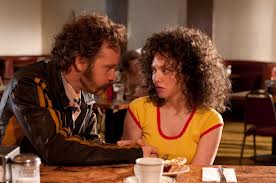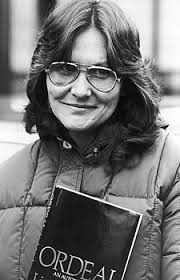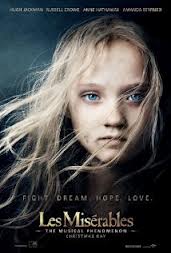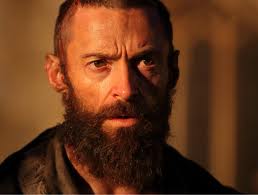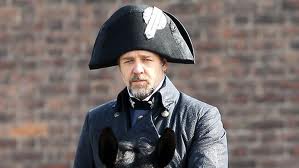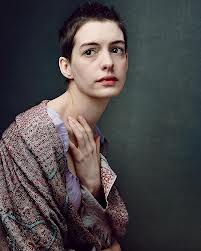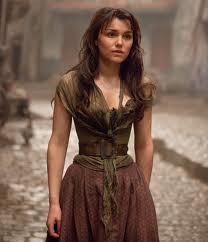Making a movie about former porn star Linda Lovelace was always going to be fraught with controversy, but for producer Heidi Jo Markel (Eclectic Pictures) Linda’s story was too important to be ignored.
Lovelace is not a film that glorifies Linda’s life. Rather it sends an important message and warning about domestic violence, the subjugation of women and how making wrong decisions can have a lasting effect on the rest of your days.
I’ve seen Lovelace twice and found it profoundly moving, at times entertaining and yes, absolutely confronting. Actor Amanda Seyfried puts in a brilliant performance as Lovelace, as does Sharon Stone, who plays her domineering mother.
And let’s not forget Peter Sarsgaard as Linda’s abusive husband Chuck Traynor. I can’t remember when I last saw so convincing a portrayal of such a manipulative and repugnant character.
One of the most startling facts revealed in the movie is that Linda Lovelace only spent SEVENTEEN DAYS working in the porn industry. The rest of her life, she campaigned against pornography and was an advocate for women’s rights.
Being in LA last week meant I had an opportunity to catch up with Heidi Jo Markel and learn more about why she was so committed to making this movie. We met for dinner at one of Hollywood’s most renowned establishments, Chateau Marmont, for a chat over dinner.
Markel first came across the concept for the Linda Lovelace story decades ago. ‘I was subconsciously tracking her story since the mid-eighties. I was too young to even really know what Deep Throat was, but I do remember Linda Lovelace speaking out against pornography and I remember thinking what an incredible juxtaposition. As it is, when anyone at the top of their field turns against it, therein lies a story,’ she said.
Many years later, Markel watched a documentary ‘Inside Deep Throat’ and learnt more about the abusive relationship between Linda and her then husband, Chuck Traynor. ‘That’s when I had a goose bump moment,’ said Markel. ‘Linda was almost his prisoner, his property, his sex slave and that’s what I realised was the story.’
Markel first established Eclectic Pictures almost ten years ago and has well earned the respect of the industry, producing films garnering acclaim such as Trust, Solitary Man and Playing for Keeps. Markel also took on the role of Executive Producer for the recent blockbuster Olympus Has Fallen. Ideally, she’d like to focus on more movies with strong lead roles for women. Like Lovelace.
Choosing the right actress for the role of Linda Lovelace was crucial. ‘You have to remember, at the start of this movie, we were looking at a very vulnerable young lady,’ said Markel. ‘She was oppressed by her parents before her captor. She was a Catholic schoolgirl with the nickname “Miss Holy Holy”. She didn’t lose her virginity till she was almost twenty years old. Then she got pregnant and was a prisoner in her parent’s home for about two years. So you need an actor who can play that vulnerability.’ Actor Amanda Seyfried was the perfect choice.
But what about critics who believe making such a movie only serves to glorify pornography? How did Markel go about explaining what she was working on to her family and friends? She took her time to consider these questions. ‘I had a hard time with this movie early on in that I had a devout Christian upbringing and I went to church every Sunday. I ran with that crowd and am still close with my parents and their generation, so for me to explain what I was working on was a bit awkward,’ she said.
‘I was a little concerned with the establishment over 60 as to whether they would respect it or not. Early on in the development process, we brought on board consultants; Gloria Steinem and Catharine MacKinnon, who is one of the greatest female rights attorneys of all time who represented Linda during the Senate hearings) on board as consultants, then the literati, the glitterati and the feminist elite fell in line to support the picture.
With such a salacious topic, Markel was surprised that the eldest of her family group have been the most supportive. ‘Just recently I was at a funeral with a lot of my parent’s friends, folks in their 80s. I was surprised they were all super excited to see this film, which meant a lot. I didn’t expect that.’ This is when Markel’s face lit up. Acceptance and approval from one’s family and friends is always important, no matter how successful you are.
Without wanting to give too much away about the movie itself, I’ll give you the heads up – don’t be fooled by the film’s light-hearted beginning. Structurally, not far in, it does a sharp U-turn and the story takes a much darker direction. This unusual idea was pitched by directing phenomenons, Rob Epstein and Jeffery Friedman, then executed by wunderkind writer, Andy Bellin. ‘I feel so blessed to have worked with such outstanding talent,’ says Markel. In doing so, the film achieves a clever balance between flash forward and present moments to draw the threads of Linda’s story together.
Yet still, when it came to an end, I wanted to know more about Linda’s later years.
How did the filmmakers decide when to end Linda’s story? ‘It was a big struggle for all of us,’ said Markel. ‘I very much wanted to include more of Linda’s activist stance and it troubled me greatly to diminish it. However, when we tested it on audiences, the few scenes filmed that summed up Linda’s activism seemed to open a Pandora’s box of more unanswered questions. Structurally, it made the most sense to end the story shortly after Linda escaped her abusive husband, our main antagonist.’
So was she happy with the final result? ‘I always want more. What I do think is that this film erred on the side of being a disciplined 92 minutes…. personally, I think the audiences could have handled more, but studios are more conservative, relying strictly on test scores. But yes, I am proud of it.’
Markel is being a harsh critic, but it’s refreshing to hear a Hollywood producer speak with such honesty. Especially given the film has received wide critical acclaim. Even talkback TV host Larry King gave the film his stamp of approval, saying, ‘Both Amanda Seyfried and Sharon Stone should win Oscars,’ – a rare tick from a man who wields huge influence.
Markel almost seems happier with how the film has helped Lovelace’s two now adult children, Dominic and Lindsay, come to terms with their mother’s past.
‘They took a blind leap of faith to go with us based on the recommendation from their attorney. And they trusted us. These kids are the most wonderful, loving kids,’ she said. ‘The only dark part of their life is that they felt their mother’s shame from the whole experience, how Deep Throat had left her. They were proud of her for speaking out but it caused them a lot of problems too because her activism put the family under the spotlight. They didn’t know how to explain their mother’s situation to a lot of people and it was a huge burden.’
Markel says the movie has liberated the whole family. ‘They can now tell their peers and co-workers about their mother and they can own her story. A lot of has evolved in the past few decades and there is no shame in having been a victim. Linda spoke out because she wanted her story to be told. She lived a horror story and she didn’t want it to happen to other people.’
It’s also very important to Markel that the film exerts an influence over women trapped in similar circumstances. ‘I promise you, there will be women out there who will see this film and will think twice about the situation they’re in. You might think things have changed in the porn industry, but they haven’t. There will always be young women caught up with scummy men.’
But it’s not just the porn industry Markel is referring to. ‘It might just be someone who is in a relationship where they are being controlled and told what to do and how to think all the time. That’s my biggest fear as a mother of my daughter. I don’t want some strange man to have a huge influence over my daughter so that she is subjugated to his opinions and thoughts and that he might take away her freedom to express herself.’
All good reasons to see Lovelace, but ultimately, it’s also a finely directed and produced and movie with a strong cast. Go see it on the big screen and let me know what you think.
Lovelace opens at Village Cinemas across the country this Thursday, September 26th.

